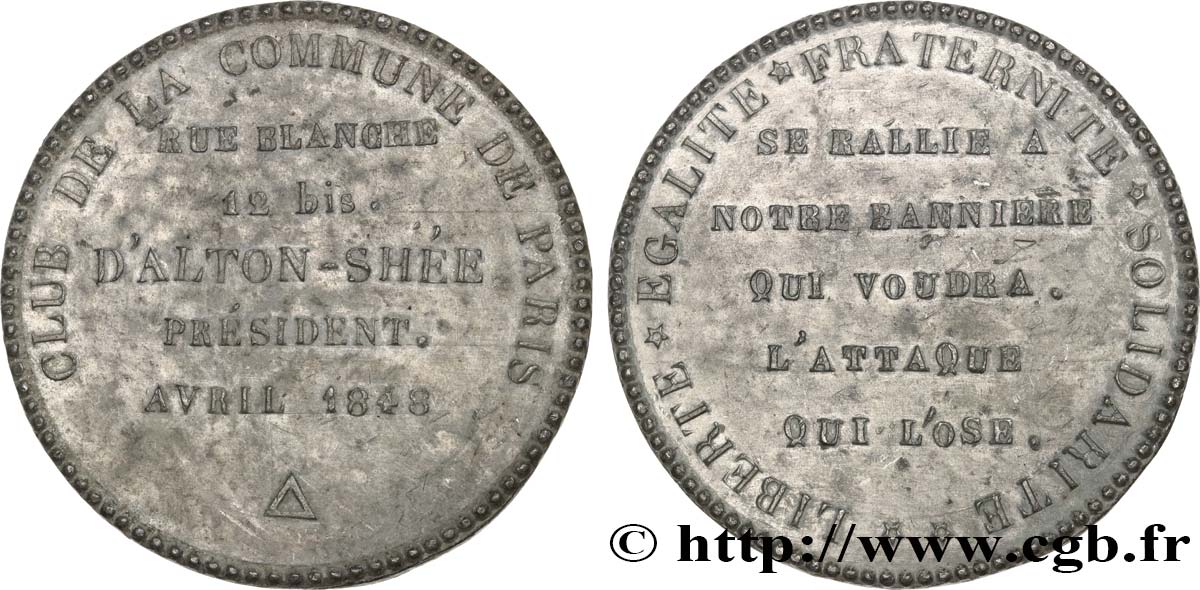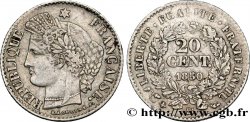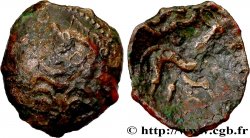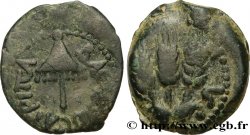E-auction 344-259306 - fme_367780 - SECONDA REPUBBLICA FRANCESE Club de la Commune de Paris
Devi Sign-in ed essere un offerente approvato fare un'offerta, Login per fare offerte. Conti sono soggetti ad approvazione e di approvazione sono raggiunti entro 48 ore. Non aspettare fino al giorno di una vendita si chiude per registrarti.Confermando la tua offerta su questo oggetto ti impegni ad un contratto legalmente vincolante per l'acquisto di questo prodotto e fare clic su «offerta» costituisce accettazione dei termini di utilizzo de e-auctions cgb.fr.
Offerta deve essere collocato in euro gli importi interi vendita only.The si chiuderà al momento sulla descrizione dell'oggetto, eventuali offerte pervenute al sito dopo l'orario di chiusura non verranno eseguite. Volte transmition possono variare e le offerte potrebbero essere respinto se si attende per gli ultimi secondi. Per ulteriori informazioni ckeck le FAQ.
SENZA COSTI PER GLI ACQUIRENTI.
SENZA COSTI PER GLI ACQUIRENTI.
| Valutazione : | 220 € |
| Prezzo : | 45 € |
| Offerta maxima : | 45 € |
| Data di fine vendita : | 18 novembre 2019 18:27:30 |
| partecipanti : | 9 partecipanti |
Tipo : Club de la Commune de Paris
Data: 1848
Nome della officina / città: 75 - Paris
Metallo : stagno
Diametro : 60 mm
Asse di coniazione : 3 h.
Peso : 38 g.
Orlo : lisse
Commenti sullo stato di conservazione:
Médaille en très bon état de conservation. Patine grise hétérogène avec des traces de manipulation et petites rayures
Diritto
Titolatura diritto : CLUB DE LA COMMUNE DE PARIS / RUE BLANCHE / 12 BIS / D’ALTON-SHÉE / PRÉSIDENT. / AVRIL 1848.
Descrittivo diritto : Légende en 5 lignes horizontales et légende autour.
Rovescio
Titolatura rovescio : LIBERTÉ * ÉGALITÉ * FRATERNITÉ * SOLIDARITÉ / SE RALLIE A / NOTRE BANNIÈRE / QUI VOUDRA. / L’ATTAQUE / QUI L’OSE..
Descrittivo rovescio : Légende en 5 lignes horizontales et légende autour.
Commento
Jusqu'en 1847, le comte d'Alton Shée resta dans les rangs du parti dynastique, et appuya en toutes circonstances la politique de Guizot. Mais tout à coup, au début de l'agitation réformiste qui précéda la révolution de 1848, il se jeta dans l'opposition et n'hésita pas à manifester, à la tribune même de la Chambre haute, des opinions nettement révolutionnaires. C'est ainsi qu'il fit, le 19 mai 1847, un grand discours contre le projet de loi relatif au chapitre royal de Saint-Denis. Il dit à ce propos :
« Je ne veux tromper personne, je ne tiens à capter l'approbation de personne, mais je crois devoir et aux autres et à moi-même d'indiquer franchement, librement, et mon point de départ et le but que je poursuis : ainsi ne voyez en moi ni l'un de ces catholiques fervents, réclament pour leur religion les conséquences de notre révolution de Juillet ; ne voyez pas en moi l'un de ces chrétiens politiques qui du haut de leur intelligence, professent la religion à cause de son utilité, je ne suis ni catholique, ni chrétien ! »
Dans maintes discussions sur les affaires étrangères, il attaqua avec véhémence le duc de Modène, qu'il appela un « Néron en raccourci », la reine de Portugal, une « princesse parjure », et M. de Metternich, un « vieillard cruel et corrompu ».
À dater de cette époque, le comte d'Alton-Shée, entièrement converti aux idées démocratiques, prit part à toutes les manifestations du parti avancé. Il s'arma comme garde national en faveur du mouvement, en février 1848, fut nommé colonel de la 2e légion de la banlieue, défendit dans les clubs, la personne et la politique de Ledru-Rollin, combattit la dictature4 de Cavaignac et la présidence de Louis-Napoléon Bonaparte, et, à la suite d'une vive protestation signée de lui contre l'interdiction des clubs votée par la Chambre le 11 mars 1849, fut arrêté et emprisonné.
Membre influent du comité démocratique socialiste de la Seine, il fut lui-même sur la liste des candidats de cette nuance à l'Assemblée législative, mais il échoua de quelques voix..
Until 1847, Count d'Alton Shée remained in the ranks of the dynastic party, and supported Guizot's policy in all circumstances.. But suddenly, at the beginning of the reformist agitation which preceded the revolution of 1848, he threw himself into the opposition and did not hesitate to express, from the very tribune of the Upper House, clearly revolutionary opinions.. This is how he made, on May 19, 1847, a major speech against the bill relating to the royal chapter of Saint-Denis. He said about this: \\\"I do not want to deceive anyone, I do not want to gain anyone's approval, but I believe it is my duty both to others and to myself to indicate frankly, freely, both my starting point and the goal I am pursuing: so do not see in me one of those fervent Catholics, who demand for their religion the consequences of our July revolution; do not see in me one of those political Christians who, from the height of their intelligence, profess religion because of its usefulness, I am neither Catholic nor Christian!\\\" In many discussions on foreign affairs, he vehemently attacked the Duke of Modena, whom he called a \\\"Nero in short\\\", the Queen of Portugal, a \\\"perjured princess\\\", and M. of Metternich, a “cruel and corrupt old man”.
From this time on, the Earl of Alton-Shée, entirely converted to democratic ideas, took part in all the manifestations of the advanced party. He armed himself as a national guard in support of the movement in February 1848, was named colonel of the 2nd legion of the suburbs, defended in the clubs the person and the policy of Ledru-Rollin, fought the dictatorship4 of Cavaignac and the presidency of Louis-Napoléon Bonaparte, and, following a strong protest signed by him against the ban on clubs voted by the Chamber on March 11, 1849, was arrested and imprisoned.
An influential member of the Seine Democratic Socialist Committee, he himself was on the list of candidates of this shade for the Legislative Assembly, but he failed by a few votes..
« Je ne veux tromper personne, je ne tiens à capter l'approbation de personne, mais je crois devoir et aux autres et à moi-même d'indiquer franchement, librement, et mon point de départ et le but que je poursuis : ainsi ne voyez en moi ni l'un de ces catholiques fervents, réclament pour leur religion les conséquences de notre révolution de Juillet ; ne voyez pas en moi l'un de ces chrétiens politiques qui du haut de leur intelligence, professent la religion à cause de son utilité, je ne suis ni catholique, ni chrétien ! »
Dans maintes discussions sur les affaires étrangères, il attaqua avec véhémence le duc de Modène, qu'il appela un « Néron en raccourci », la reine de Portugal, une « princesse parjure », et M. de Metternich, un « vieillard cruel et corrompu ».
À dater de cette époque, le comte d'Alton-Shée, entièrement converti aux idées démocratiques, prit part à toutes les manifestations du parti avancé. Il s'arma comme garde national en faveur du mouvement, en février 1848, fut nommé colonel de la 2e légion de la banlieue, défendit dans les clubs, la personne et la politique de Ledru-Rollin, combattit la dictature4 de Cavaignac et la présidence de Louis-Napoléon Bonaparte, et, à la suite d'une vive protestation signée de lui contre l'interdiction des clubs votée par la Chambre le 11 mars 1849, fut arrêté et emprisonné.
Membre influent du comité démocratique socialiste de la Seine, il fut lui-même sur la liste des candidats de cette nuance à l'Assemblée législative, mais il échoua de quelques voix..
Until 1847, Count d'Alton Shée remained in the ranks of the dynastic party, and supported Guizot's policy in all circumstances.. But suddenly, at the beginning of the reformist agitation which preceded the revolution of 1848, he threw himself into the opposition and did not hesitate to express, from the very tribune of the Upper House, clearly revolutionary opinions.. This is how he made, on May 19, 1847, a major speech against the bill relating to the royal chapter of Saint-Denis. He said about this: \\\"I do not want to deceive anyone, I do not want to gain anyone's approval, but I believe it is my duty both to others and to myself to indicate frankly, freely, both my starting point and the goal I am pursuing: so do not see in me one of those fervent Catholics, who demand for their religion the consequences of our July revolution; do not see in me one of those political Christians who, from the height of their intelligence, profess religion because of its usefulness, I am neither Catholic nor Christian!\\\" In many discussions on foreign affairs, he vehemently attacked the Duke of Modena, whom he called a \\\"Nero in short\\\", the Queen of Portugal, a \\\"perjured princess\\\", and M. of Metternich, a “cruel and corrupt old man”.
From this time on, the Earl of Alton-Shée, entirely converted to democratic ideas, took part in all the manifestations of the advanced party. He armed himself as a national guard in support of the movement in February 1848, was named colonel of the 2nd legion of the suburbs, defended in the clubs the person and the policy of Ledru-Rollin, fought the dictatorship4 of Cavaignac and the presidency of Louis-Napoléon Bonaparte, and, following a strong protest signed by him against the ban on clubs voted by the Chamber on March 11, 1849, was arrested and imprisoned.
An influential member of the Seine Democratic Socialist Committee, he himself was on the list of candidates of this shade for the Legislative Assembly, but he failed by a few votes..








 Segnalare un errore
Segnalare un errore Stampate la pagina
Stampate la pagina Condividi mia selezione
Condividi mia selezione Fai una domanda
Fai una domanda Consegnare / vendere
Consegnare / vendere
 Descrittivo
Descrittivo













